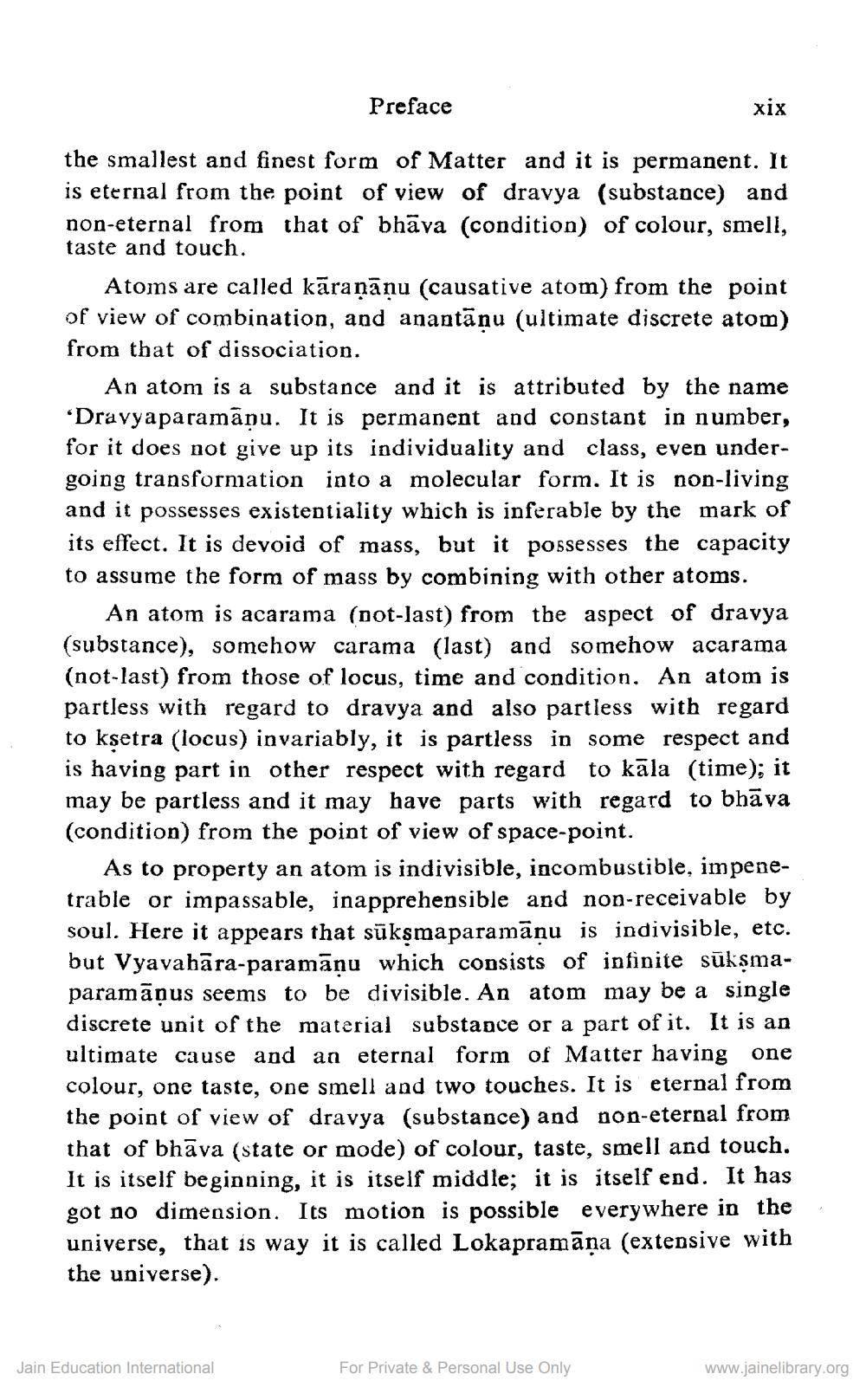________________
Preface
the smallest and finest form of Matter and it is permanent. It is eternal from the point of view of dravya (substance) and non-eternal from that of bhava (condition) of colour, smell, taste and touch.
xix
Atoms are called kāraṇāņu (causative atom) from the point of view of combination, and anantāņu (ultimate discrete atom) from that of dissociation.
An atom is a substance and it is attributed by the name 'Dravyaparamāņu. It is permanent and constant in number, for it does not give up its individuality and class, even undergoing transformation into a molecular form. It is non-living and it possesses existentiality which is inferable by the mark of its effect. It is devoid of mass, but it possesses the capacity to assume the form of mass by combining with other atoms.
An atom is acarama (not-last) from the aspect of dravya (substance), somehow carama (last) and somehow acarama (not-last) from those of locus, time and condition. An atom is partless with regard to dravya and also partless with regard to kṣetra (locus) invariably, it is partless in some respect and is having part in other respect with regard to kāla (time); it may be partless and it may have parts with regard to bhāva (condition) from the point of view of space-point.
Jain Education International
As to property an atom is indivisible, incombustible, impenetrable or impassable, inapprehensible and non-receivable by soul. Here it appears that sukṣmaparamānu is indivisible, etc. but Vyavahara-paramāņu which consists of infinite sukṣmaparamāņus seems to be divisible. An atom may be a single discrete unit of the material substance or a part of it. It is an ultimate cause and an eternal form of Matter having one colour, one taste, one smell and two touches. It is eternal from the point of view of dravya (substance) and non-eternal from that of bhāva (state or mode) of colour, taste, smell and touch. It is itself beginning, it is itself middle; it is itself end. It has got no dimension. Its motion is possible everywhere in the universe, that is way it is called Lokapramāņa (extensive with the universe).
For Private & Personal Use Only
www.jainelibrary.org




